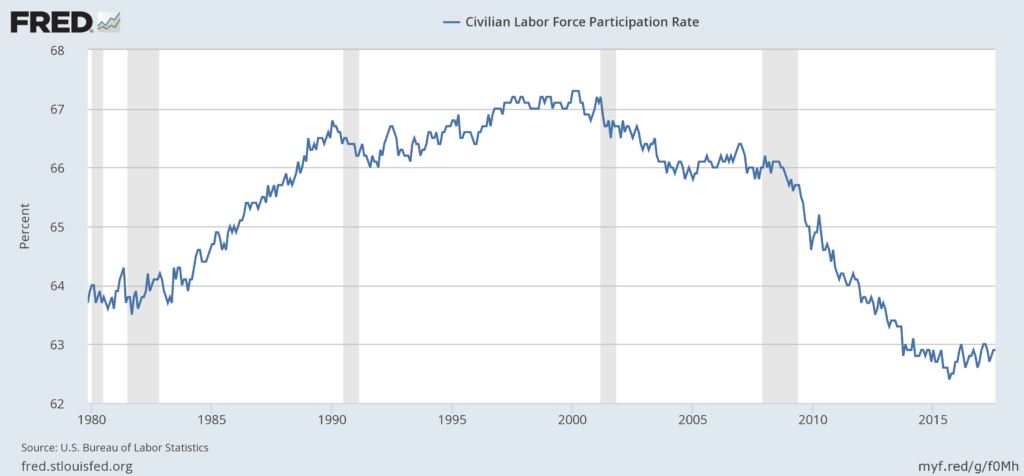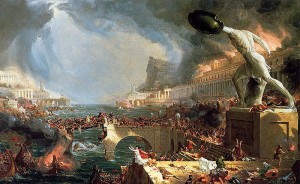The response to my last post reviewing the Roman Republic Mystery series SPQR, made me think a post on fiction I’ve loved would be appropriate. After some writing, I decided to limit it to books and series I loved before I left high school to keep the word count down to something reasonable.
I make no particular claim that any of these books have any literary merit, only that that I loved them when I read them. Please add your own fiction loves, especially from when you were young, in the comments. Any comments not on the topic of fiction will be removed as I see them.
Patricia McKillip – The Riddle Master of Hed trilogy
In grades six and seven I loved the first two novels of this trilogy, The Riddle Master of Hed, and Heir of Sea and Fire, like crazy. I read each multiple times. Like no one else I’ve read since, McKillip got the feel of magic and myth right. Her world is lyrical and her magic is magical, not technology in drag.
I’ve read them every decade since, and they hold up. McKillip went on to write a lot of books. In some the prose becomes too dense for me, and I feel these are the best she ever wrote, though it may just be a case of imprinting. Nonetheless, highly recommended.
Marion Zimmer Bradley – The Darkover Series
Bradley became famous outside science fiction with The Mists of Avalon, which is actually where I stopped reading her, and post-death some nasty sexual allegations have come out. All that said, her Darkover series, about a lost colony world being rediscovered by more technologically advanced Terrans made a huge impression on me.
It’s an excellent meditation on colonialism and what happens when a more technologically advanced civilization effects a less advanced one with cultural institutions and traditions that aren’t always inferior. It has psionics and some aliens which shift genders and it’s full of 70s era feminism, and it all winds up feeling both heavy and adventurous, because Bradley could tell an adventure story too when she wanted to.
I read these novels when I was ten to 12 years old, and I haven’t read them since, but they made a huge impression on me at the time.
Harper Hall Trilogy, Anne McCaffery
The first two books in particular imprinted me: DragonSong and DragonSinger, about Menolly, a young girl growing up in a sea-hold where girls weren’t supposed to do music. In the second book Menolly makes it to Harper Hall, where music is allowed, but where the first girl Harper is not looked on favorably by all.
These books are both coming of age novels to the tee, that’s what they do, and they may do it better than any other books I’ve read. Menolly is relatable, and the supporting characters shine.
Great for kids and teenagers, but I think adults can still enjoy them.
Desmond Bagley novels. Bagley was a thriller writer who died in the early 80s. His novels were bestsellers, but he’s forgotten now. Not all of his novels are good. I would avoid Juggernaut, Wyatt’s Hurricane, Bahama Crisis, Windfall, and maybe Flyaway.
Flyaway’s not a good novel, but it is a good paean to the North African desert. The protagonist isn’t very interesting, but the real central character, the desert, is.
Bagley is sexist by today’s standards, but not those of the 1950s through the 1970s.
But Bagley has that magical alchemy that allows first person narrative to work. His characters are people one wants to spend time with. They aren’t interesting or complicated, but they are people who are easy to like.
God Stalk, P C Hodgell
If I had a favorite book as a teenager, this was it, hands down. I probably read it 25 times before I left high school. A partially amnesiac heroine winds up in a city with thousands of Gods where the most powerful institution is the thieves guild. A monotheist herself, the existence of so many gods challenges her faith, and the book chronicles her both becoming a thief, and trying to understand the nature of divinity.
This was a fun, fun, book, but it was also philosophical, character-driven in the best way, and so on. I’ve read it since and enjoyed it, but it does have some coming of age vibe.
Dick Francis Novels
So, Dick Francis only ever really had one protagonist despite their differing names, and in certain senses only ever wrote one novel, just over and over again. They’re all first person, the protagonist is always calm, insightful, capable and inhumanly impossible to push around.
But, if you like that person and that novel, Francis mixes it up enough to make it fun to read over and over again, and Francis was a very good writer. Comfort food books, despite being mysteries often involving death.
White Wing, Gordon Kendall
You’ll probably have trouble finding this one. It’s about a galaxy where Earth was destroyed by alien invaders, and some of the remaining humans fight as mercenaries for a group of worlds opposing those invaders. It’s a book about alienation and about family. It is, in fact, the first book I ever read about polyamory, the White Wing’s squads also being families with more than two adults in them, but I didn’t know what polyamory was, nor care.
Good plot, good characters, good world building (not technologically realistic, but culturally so) and quite heart warming, since it’s really about a family healing its wounds and coming together. Oh, and space fighters with BattleStar Galactica/Star Wars-style battles.
The Girl from the Emeraline Island, Robert S. Blum
Yet another coming of age novel with a female protagonist. This is set in a post-apocalyptic earth, and the Emeraline Isle is dotted with shrine schools which only boys are allowed to go to. The protagonist, of course, has disguised herself as a boy and gone to shrine schools. The book starts as she is discovered.
The rest develops more or less as you would expect, but for some reason this book made a huge mark on me when I read it. It ends well, resolving what needed to be resolved while not destroying the integrity of its world. Sometimes you can win, and the world doesn’t change, or even accept you, and that’s not exactly ok, but it is what it is.
Witch World Series, Andre Norton
Norton was one of the most prolific science fiction and fantasy novelists to ever write and her books show it, they are very uneven, and they aren’t always good.
That said, I read almost everything she wrote, and enjoyed even the bad ones. Her main creation was the “Witch World,” a world with powerful magic, mostly forgotten by mortals, and a multitude of odd races including old ones now long gone.
The Witch World had a feeling common in fantasy at one time (Moorcock had it also) of layering of history that goes back and back and back into myth and legend, with old artifacts and lost gods and cities and secrets and lore that no one could know entirely, with eldritch powers that one could approach but never entirely understand.
Magic was not always reliable or to be trusted; it certainly wasn’t always understood. It was mysterious and sometimes fickle and could be very dangerous to those who approached it without care.
It is this feeling that drew me to the Witch World novels. They don’t feel like modern Americans (or 60s Americans) plunked down in a fantasy world, and the fantasy world doesn’t feel like ours but with magic.
I can’t recommend these novels as highly as some of the others in this post, but I can still recommend them. Start with Witch World or with The Crystal Gryphon and go from there.
Concluding Remarks
I read a ton when I was younger. I know that as of age ten I was reading in excess of ten books a week, because the library lending limit was six, we went once a week, but I also took books out of the school library.
In my teen years, when on holiday, I’d read two or three books a day. In some ways, much of my life can be characterized as reading books with some other stuff happening between books. I always had a book with me, and I was always reading, even in class, to the annoyance of many teachers (but most let it lie since I could answer their questions when called on).
Because they weren’t fiction, I didn’t include the following books above, but in grade 4, I discovered mythology and read every myth I could find, which meant Greco Roman and some Norse. Bullfinch’s mythology, of course, but others. It’s possible that that reading mattered more to me than anything I’ve read before or since.
Because I read so much, I read everything. I remember a series of “nurse novels” from the 60s which I loved, for example, though I don’t remember the names. I read all the SciFi standards like Heinlein, Asimov and Clarke, as well as many who are long forgotten now like E. E. Doc Smith (better than he reads, because most of the stereotypes he wallows in weren’t stereotypes when he invented them.)
And since my father preferred thrillers I read those too, as a way of getting around that pesky library borrowing limit, which is how I discovered Bagley and Francis, among others.
I read books for escape, no question. To this day I’ve little interest in books that are about wallowing in despair or existential angst and so on; if I want to wallow in that I can read the news or walk down the street. I spent a fair bit of time in places like Bangladesh and Calcutta, I don’t want to spend my free time wallowing in elegantly written middens, I’ve seen the real thing more than I wanted to and I can have an existential moment any time I want to and many I don’t.
One thing I regret about computers it that I read less books, fiction and non fiction. But lately, that’s changed, as I got an e-reader and it turned out to be book-crack because of how easy and convenient it is.
And that has pleased me. I’ve gone back and re-read a lot of older novels, some I haven’t read in decades, and also read new stuff. And I like that, and as I knew was true, it turns out to be a lot more fun than hanging out on the internet.
Let us know what books you loved when you were young below in the comments.
The results of the work I do, like this article, are free, but food isn’t, so if you value my work, please DONATE or SUBSCRIBE.


